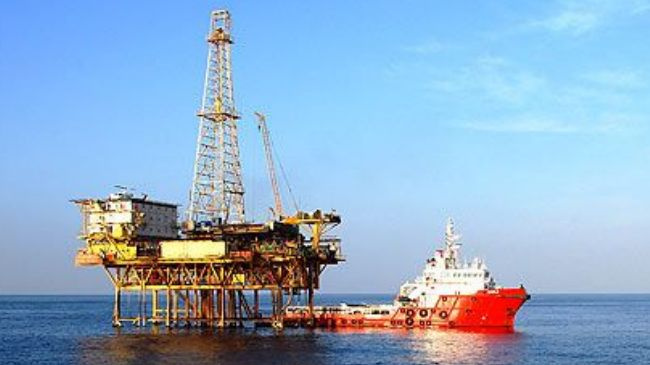Following the ease of oil sanctions
Iran Prepared for European Markets

National Iranian Oil Company’s director of foreign affairs expressed Iran’s readiness to resume oil exports to the members of the European Union. Iran’s oil exports almost came to a halt once the sanctions became effective and the resumption of exports to Europe is bound to the outcome of Iran-G5+1 talks.
Geographical distribution of Iran’s oil export in the world indicates that the resumption of exports to European markets is vital to the country’s oil-dependent economy. Since the Islamic revolution up until the 10th Iranian administration’s midterms, European states have purchased 40 percent of Iran’s oil on average, while the number was even higher during the Imposed War and swung around 62-65 percent.
The 9th Iranian administration increased the oil sales to Asian countries without making substantial changes to Europe’s quota. With a number of oil ministers come and gone through the 10th administration, Iran’s crude oil was exported to the countries that neither the risk nor the costs of shipment to was justified. It is not to mention that the volume of production decreased drastically in the said era. Unfortunately, a lack of statistics makes it difficult to speak about the reduction of oil exports to various regions. But what is clear is that the country’s oil exports to different parts of the globe had a huge fall around 50 to 70 percent. Due to the sanctions, oil exports to Europe can be considered little to nothing.
Regarding the substitution of Russia and Iraq’s crude oil with Iranian oil in a number of European refineries, Seyyed Mohsen Ghamsari the director of foreign affairs at NIOC said: “Refineries have the freedom to supply their crude oil from anywhere they want.”
The Iranian official underlined the sanctions as the biggest hurdle on the road to resuming Iran’s oil exports to Europe and declared: “Once the sanctions are lifted, the door will open to Iran’s crude oil exports.”
Ghamsari is confident that Iran will retain its top position should the sanctions come to an end, but he stressed that the overhaul depends on negotiations between Iran and the World Powers.
Iran’s oil exports to Europe has several important aspects; first, the EU has always been one of the better buyers of Iran’s crude oil and Europeans have never failed to pay back with exchange or through technology and technical knowledge. Sudan, Tanzania, Nicaragua, China and India were among the countries that former Iranian administration made a deal with on oil exports, but many of which never paid their debts. There were even the strange rumors that the Iranian government intended to grant loans to these countries to let them clear their debts on Iran’s oil exports. India proposed to pay a proportion of its debts with Rupee and made other decisions in conflict with Iran’s national interests.
The second advantage of opening European markets is the extension of ties between Iran and European countries. Iran’s relation with the members of the EU was strained and the country was losing its bargaining power against Europeans over the past few years. The major concern of world’s biggest oil buyers before the announcement of more sanctions against Iran was that with Iran out of the oil market, oil prices would soar as much as $200 a barrel and that Iran would gain more bargaining power. Unfortunately, the odds were against Iran and the sanctions led to the reduction of oil prices.
It is important to take into account that the EU was not willing to embrace Iran among its oil partners, but with the new Iranian administration at the helm and with tact and wisdom ruling the decisions of the new Iranian oil minister, the Europeans are regaining trust to resume trade with Iran.
Over the past few years, Iran’s oil exports to the EU decreased together with oil exports to all other buyers. The sanctions required all Asian consumers of Iran’s oil to reduce 20 percent of their imports from Iran year over year as far as it hits rock bottom. Since the arrival of President Rouhani’s administration, the reduction of the country’s oil exports came to a halt and even the amount of oil exports saw a slight increase. NIOC’s director of foreign affairs has acknowledged the increase of oil exports as well.
Regarding the export of one million barrels a day to global markets, Ghamsari commented: “The extension of Iran nuclear talks means that the 20-percent year on year reduction of oil exports will come to an end. Based on Geneva interim agreement on nuclear talks, Iran will maintain the exports 1 million barrel a day, despite the fact that country’s oil production capacity has surpassed one million barrels a day, thanks to the inauguration of new phases in South Pars oil field. The oil minister has also spoken of 1.5 million barrels a day.”
On reaching an interim deal with G5+1 and the extension of nuclear deadlines until November, the NIOC official said: “Further suspension of some of the sanctions will help Iran to maintain its current volume of oil exports.”
Regarding some international institutions predicting a global decline in demand for Iran’s crude oil in the closing stages of 2014, Ghamsari asserted: “The dip in demand will not affect the country’s overall oil exports and the volume of exports will remain the same as a result of renewed deals.”
This report was published in the 9 August 2014 edition of Tejarat-e-Farda weekly magazine

